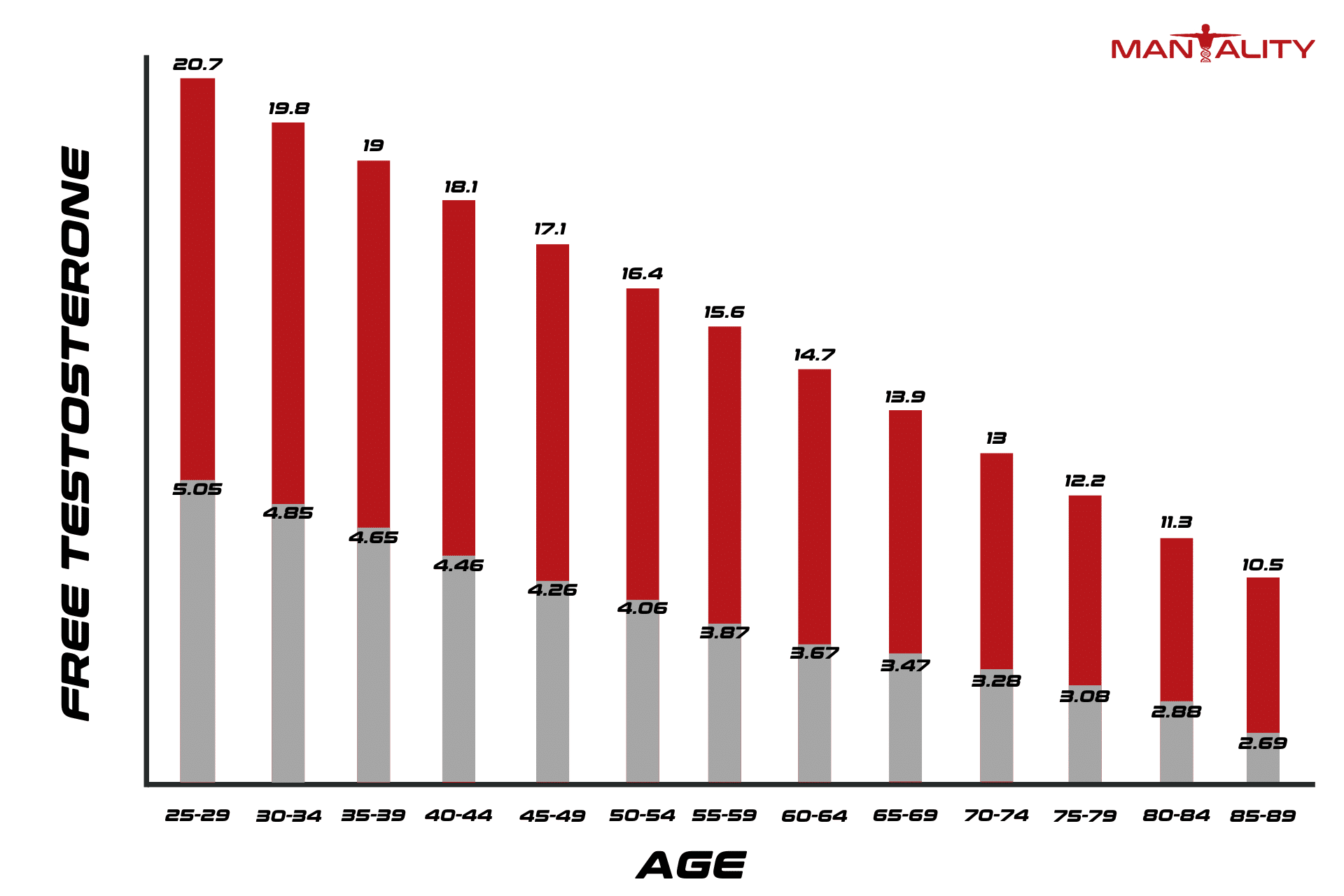Testosterone is crucial for building muscle and fueling your sex drive. But receptors for the hormone actually exist throughout your body, from your brain to your bones to your blood vessels.
So, if you’re low on T, the health consequences could extend far beyond the gym and the bedroom.
The thing is the eight symptoms that follow aren’t proof of low testosterone on their own. For concrete proof, you’ll usually need two blood tests showing low levels before your doctor makes an official low testosterone diagnosis.
The good news is that, if low T is truly to blame, many of the health side effects of low testosterone can be reversed, or at least improved, with testosterone therapy.
The eight common symptoms of low testosterone are:
- Your sex drive disappears
- Your muscles shrink
- Your penis may get smaller
- Your belly grows
- Your memory falters
- Your mood tanks
- Your bones weaken
- Your heart may be at risk
Your Sex Drive Disappears
Perhaps the best-known, quickest, and most common effect of low T is low libido. Besides wanting less sex, men with low T may also masturbate less and report fewer fantasies and erotic dreams. Brain areas involved with sexual desire, including the amygdala, are packed with testosterone receptors.
The hormone fits inside them like a lock inside a key, lighting them up to arouse you. Without it, you’re missing a critical step in the turn-on process.
Your Muscles Shrink
Ample testosterone puts your body in an anabolic, or muscle-building, state by helping your body produce and assemble proteins that form the building blocks of lean mass. When your testosterone levels drop, your body turns catabolic instead, breaking down muscle tissue instead of building it up.
In fact, in one Japanese study, men with low free testosterone levels – a measure of the amount of hormone available to bind to receptors – had double to triple the risk of muscle loss with ageing as those with normal levels.
Your Penis May Get Smaller Too
Without a steady flow of testosterone, the tissues in your penis, scrotum, and testicles can atrophy, or shrivel. As a result, your penis might lose length and girth. You may notice your balls shrink, too – they often shrivel to half the size and turn squishy instead of firm.
Though testosterone replacement therapy won’t bring back your testicular volume, when it comes to your penis, the treatment has a good chance of restoring its glory.
Your Belly Grows
Even as you lose size where it counts, you gain it where it hurts. In one Australian study, men with prostate cancer gained 14 percent more body fat and 22 percent more visceral fat after one year of androgen deprivation therapy, a treatment which turns off testosterone’s effects.
Visceral fat is the deep abdominal fat that forms around your organs and increases your risk for diabetes and heart disease. In men, low testosterone may increase the activity of an enzyme called lipoprotein lipase, the study authors suspect. This compound drives circulating building blocks called lipids into visceral fat cells, plumping them up.
Your Memory Falters
Trouble with thinking and memory often occurs in men with low T. In 2015 study from Australia, men whose testosterone levels declined over 5 years also experienced a drop in scores on tests of their mental function and memory. Besides the amygdala, areas of the brain important for memory and attention – such as the cerebrum – also have testosterone receptors.
When there’s not enough of the hormone pumping into those receptors, your brain cells may not be able to function as well, the study authors note.
Your Mood Tanks
Some of the side effects of low testosterone – such as sexual dysfunction and weight gain – can bring on the blues. But there’s also evidence of a more direct effect of low testosterone on mood.
According to research, 23 percent of young men with newly diagnosed low testosterone met the criteria for depression, compared to only 5 percent of young guys with normal levels of the hormone. Empty testosterone receptors in brain areas linked to mood are likely responsible for your depressed state.
Your Bones Weaken
Bone is actually living tissue, constantly broken down and rebuilt. When testosterone levels fall, your bone breaks down faster than your body can build it back up. As a result, you’re at a higher risk of low bone density, osteoporosis, and fractures.
A free consultation with Mantality Health can reveal your current testosterone levels along with treatments plans to alleviate these symptoms. Also talk to your doctor. Just know that there are always options, and the first step is to simply reach out to a medical professional to see what’s going to be the right treatment for you.




